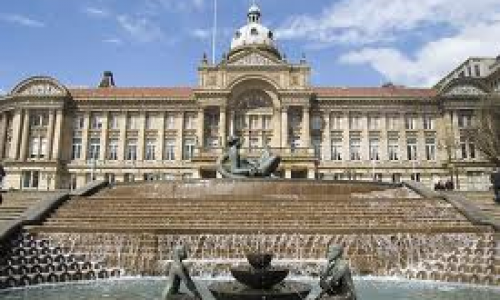
More misery as Birmingham faces six per cent cut in council spending power
Town hall bosses have clashed with the Government over next year’s spending settlement for local councils, claiming that Ministers were presenting a sanitised picture of the scale of cutbacks.
Local Government Minister Kris Hopkins told MPs that councils in England would see their spending power reduced by an average 1.8 percent in 2015-16 – about level with inflation.
But the estimate was dismissed by the Local Government Association which said the amount of money available for councils to spend would actually fall by an average of 8.8 per cent when the distribution of ring-fenced grants was taken into account.
Birmingham city council, the largest local authority in the UK, will see its spending power fall six per cent because it is so heavily dependent on Government grant to tackle social deprivation and unemployment.
The spending cut in Birmingham is the sharpest for any West Midlands council but in line with expectations.
The council has said it needs to cut spending by £117 million in 2015-16 to reflect a sharp reduction in grant.
Birmingham council leader Sir Albert Bore said: “The figures are broadly in line with what we were fearing, so we will still need to make the level of cuts that were set out recently in our White Paper. I am extremely disappointed that the Government has not responded to Birmingham’s proposal, which had cross-party support, for a fairer approach to the distribution of grant cuts.
“The cuts confirmed today are equivalent to almost £160 per dwelling and the cut is the greatest of all eight core cities in the country. This essentially echoes the warnings we issued when our budget white paper was published last week.
“We are currently consulting on a series of budget proposals, and will need to consider in the New Year how best to respond to the comments which people make and also the implications of today’s Government announcement.”
Mr Hopkins insisted the settlement was “fair for all parts of the country”.
No council would face a loss of more than 6.4 per cent, he claimed.
Mr Hopkins told MPs the settlement still left councillors with “considerable total spending power” and that many local authorities were seeing growth in income from business rates. He said the actual drop in spending power was 1.6 per cent when other grants were taken into account.
He said, with an “unprecedented challenge to public finance” the government had “delivered a settlement that is fair for all parts of the country, whether North or South, urban or rural”.
Mr Hopkins added: “Councils facing the highest demand for services continue to substantially receive more funding and we continue to ensure that no council will face a loss of more than 6.4% in spending power in 2015-16, the lowest level in this Parliament.”
Labour said councils like Birmingham in the greatest need were facing the biggest cuts in funding, while the LGA said cuts of up to 6.4 per cent would “push some authorities to breaking point”.
The minister told MPs that all councils had achieved a balanced budget in 2014-15, and, he said, the “majority of residents remain satisfied with the way their council has run things”.
The difference between the Government’s estimate of spending cuts and the LGA can be accounted for by the use of the ‘spending power’ concept favoured by Ministers.
The spending power figure combines regular central government funding with one-off grants and things like council tax, a proportion of business rates and other fees and charges.
The Local Government Association calculates a figure excluding council tax and part of the Better Care Fund that it does not think is going to go to councils, and it reckons that funding is going to fall by an average of 8.8 per cent next year.
Meanwhile, the Department for Communities and Local Government has insisted councils “can make hundreds of millions of pounds of sensible savings” without cutting front line services.
An independent report commissioned by the Government contained examples of how councils have made savings “through better policies, new technology, collaborating with each other, taking early action and working with the private and charitable sectors”.
Kirklees MBC was included, it said, because it saved £20m using a ‘one council’ approach which brought HR and business support services together and saw the number of senior managers reduced.
Local government minister Mr Hopkins said: “This report outlines the scope for how councils can make hundreds of millions of pounds of sensible savings and will help town halls deliver a better deal for their local taxpayers.
“The truth is responsible councils across the country have stayed focussed on delivering sensible savings so they can modernise local services and keep council tax down. Every bit of the public sector needs to do their bit to pay off the budget deficit inherited from the last administration and this includes local government which accounts for a quarter of all public spending.
“It is now time for all councils to follow in the footsteps of the trailblazing town halls who have balanced the books, kept council tax down for hardworking families while still improving local services.”
The Local Government Savings Study was carried out by a research team from Shared Intelligence and Grant Thornton LLP.
Similar Articles
PM: gave unlawful advice; frustrated Parliament
"Scenes." As young people would say, writes Kevin Johnson. "Unlawful." "Unequivocal." "Historical." These words are not,
WMCA: Nothing to see here…move along
As the Prime Minister prepared to address leaders ‘up North’ gathering for the Convention of
HS2: new driver needed
Is the Oakervee Review "welcome", "frustrating" or the end of the line for HS2, asks
Dawn goes Down Under
It might appear that Birmingham city council changes its chief executives more regularly than its
Hezza: Give Metro Mayors greater powers to deliver housing, skills and jobs
Britain’s metro mayors should be given greater powers over housing, schools and jobs to truly










